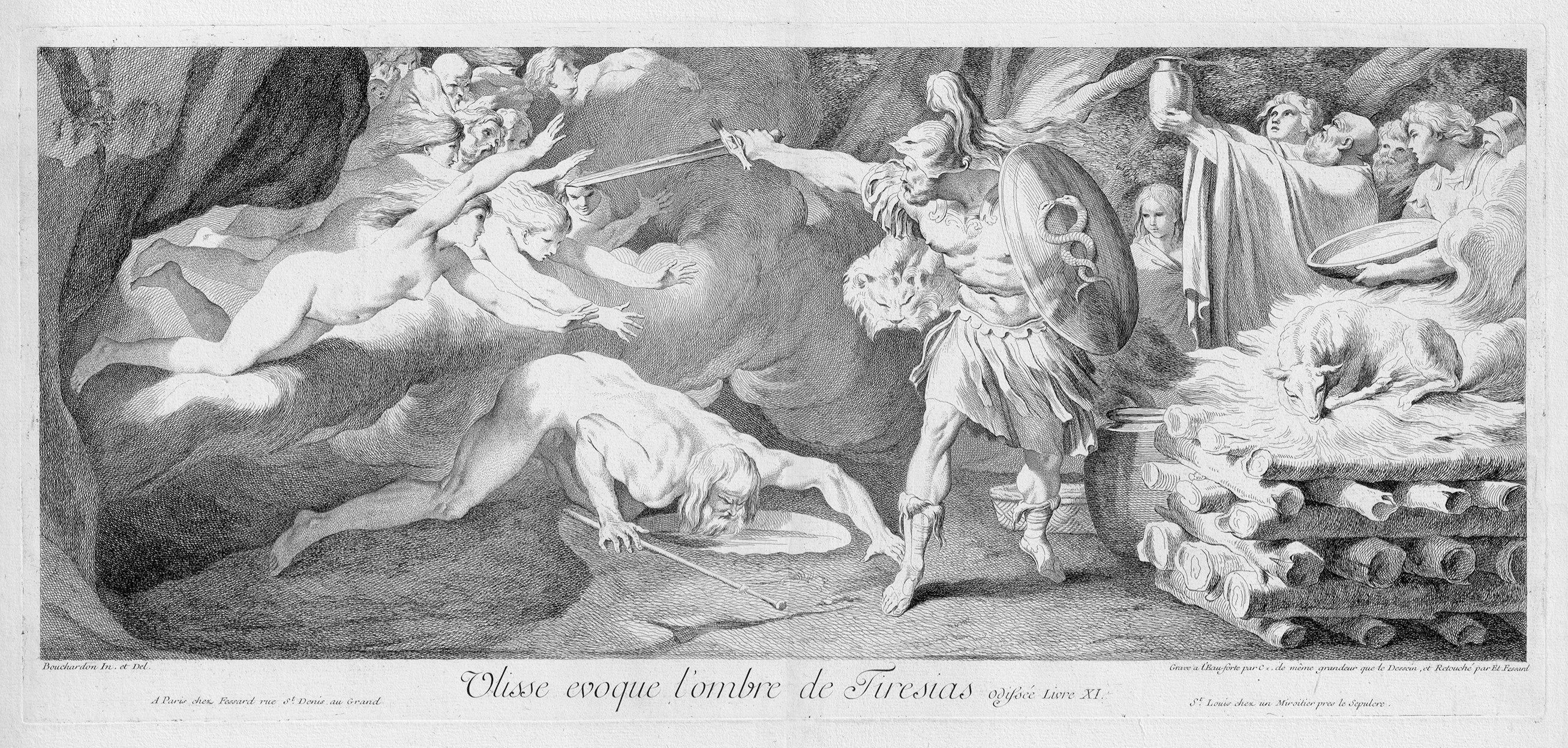Loading the page ...
Anne-Claude-Philippe de Tubières Comte de Caylus
(1692–1765, Paris)
and Étienne Fessard. Ulysses Invokes the Spirit of Tiresias. Etching and engraving after Edme Bouchardon, on two connected sheets. 26.9 x 58.5 cm. Circa 1738. Inventaire du Fonds Français 52 (Caylus), 25 (Fessard); exhibition catalogue Edme Bouchardon (1698–1762): une idée du beau, edited by Anne-Lise Desmas, Édouard Kopp et al., Paris 2016, no. 179. Watermark: Letters.
The depiction of Odysseus invoking the spirit of the prophet Tiresias, which has been rendered with great dramatic intensity, attracted considerable attention shortly after its publication. It is regarded as one of the most famous graphical compositions made after a design by the sculptor and draughtsman, Edme Bouchardon. This rare print etched by Caylus reproduces a red chalk drawing of the same size by Bouchardon which is now lost, although a contre-épreuve has been preserved in the Louvre in Paris (inv. no. 24306).
Anne-Claude-Philippe de Tubières, Comte de Caylus was an antiquarian bookseller, writer, collector and etcher who in 1731 was accorded the status of an amateur member of the Académie Royale de Peinture et de Sculpture. The address states that the etching was reworked with a burin and issued by the Parisian engraver and publisher, Étienne Fessard (1714–1777, Paris). The highly dramatic scene illustrates the moment when Ulysses and his companions arrive at the entrance to the underworld, where the hero wishes to invoke the spirit of the deceased seer Tiresias with the help of an animal sacrifice so that he can ask the prophet how his journey is to proceed. In his intelligently arranged, very tense composition Bouchardon has combined several elements from the episode to produce an impressive overall picture. While his companions carry out the animal sacrifice on the right, Ulysses in the centre of the picture has to wield his sword to ward off the arriving groups of spirits, all of whom wish to drink the sacrificial blood. This privilege is reserved for the old seer, however.
The publication of this sheet, which has been transposed to the printmaking medium with great artistry, was announced in the May 1738 edition of Mercure de France. A very fine, differentiated impression with margins. Minor ageing and traces of
handling, otherwise in excellent condition.
